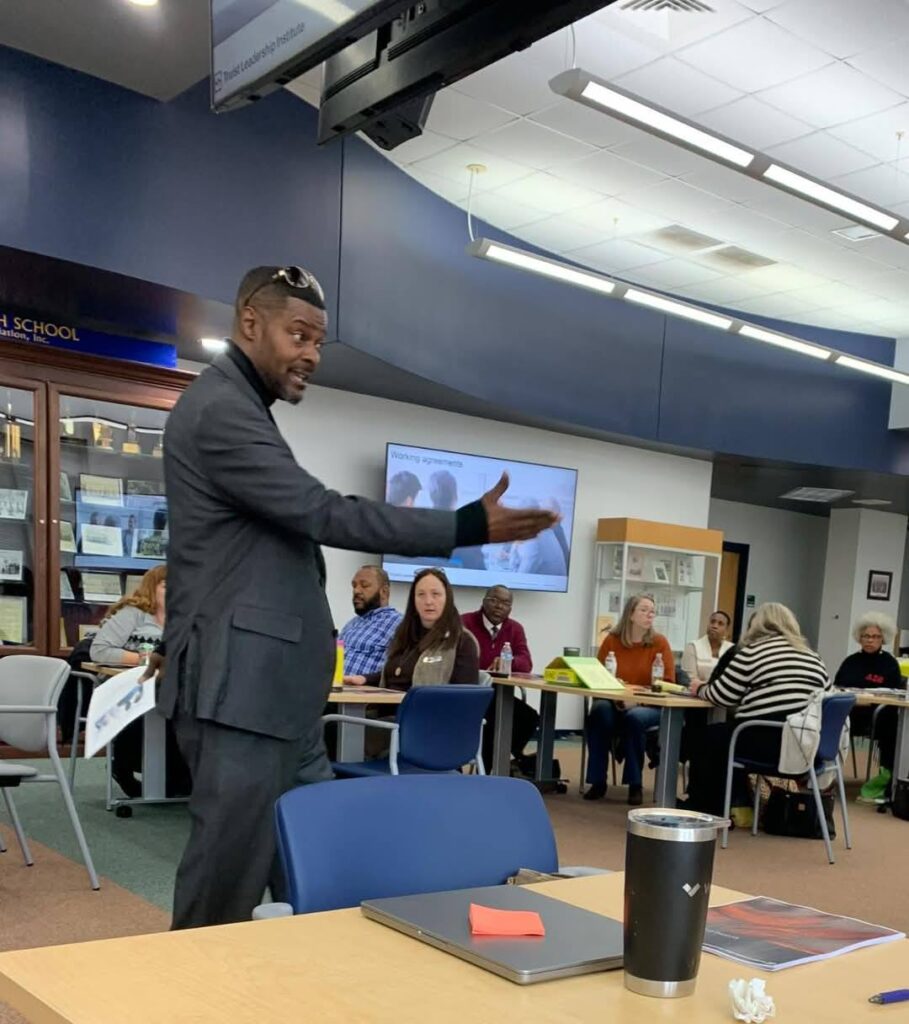In today’s rapidly evolving business landscape, exceptional leadership skills have become more crucial than ever before. Whether you’re steering a multinational corporation, managing a small team, or simply aiming to enhance your personal development, understanding and mastering leadership skills is essential for driving success in any environment.
This comprehensive guide explores the multifaceted nature of leadership skills, providing actionable insights and strategies that can transform your leadership approach and elevate your effectiveness as a leader.
Table of Contents

What Are Leadership Skills?
Leadership skills encompass a diverse set of abilities, traits, and behaviors that enable individuals to guide, inspire, and influence others toward achieving common goals. Unlike management skills, which focus primarily on administrative and operational efficiency, leadership skills involve a deeper connection with people and a broader vision for growth and innovation.
True leadership extends beyond formal authority or position. It manifests in the capacity to envision possibilities, communicate effectively, make sound decisions, and motivate others to perform at their highest potential. As Tabari Wallace, renowned transformational educator and leadership expert notes, “Leadership isn’t about titles or positions—it’s about impact, influence, and inspiration.”
The Core Components of Effective Leadership
Effective leadership is built upon several foundational components that work in harmony to create a comprehensive leadership approach:
1. Vision and Strategic Thinking
Exceptional leaders possess the ability to:
- Develop and articulate a compelling vision that inspires action
- Anticipate trends and changes in the business environment
- Think critically about complex problems and generate innovative solutions
- Balance short-term objectives with long-term goals
- Create strategic frameworks that guide organizational direction
Understanding how to shape the path to innovation is crucial for leaders who aim to stay ahead in today’s fast-paced world. Visionary leaders don’t just react to change—they proactively create it.

2. Emotional Intelligence
Emotional intelligence has emerged as one of the most critical leadership skills in recent years. Leaders with high emotional intelligence demonstrate:
- Self-awareness regarding their own strengths, weaknesses, and emotional states
- Empathy and understanding of others’ perspectives and feelings
- Ability to build and maintain positive relationships across diverse groups
- Effective regulation of emotions, particularly during stressful situations
- Social awareness that allows them to navigate complex interpersonal dynamics
Research from the Harvard Business Review indicates that emotional intelligence accounts for nearly 90% of what sets high performers apart from peers with similar technical skills and knowledge.
3. Communication Excellence
Communication forms the backbone of effective leadership. Skilled leaders:
- Articulate ideas clearly and concisely in both written and verbal forms
- Listen actively and attentively to understand different viewpoints
- Adapt their communication style to different audiences and contexts
- Provide constructive feedback that motivates improvement
- Use storytelling to convey complex ideas in memorable ways
The power of engagement highlights how effective communication can transform team dynamics and drive enthusiasm among team members.
4. Decision-Making Capabilities
Leaders are constantly faced with making decisions that impact their teams, organizations, and stakeholders. Strong decision-making involves:
- Gathering and analyzing relevant information from multiple sources
- Weighing potential outcomes and associated risks
- Making timely decisions even with incomplete information
- Taking calculated risks when necessary
- Learning from both successes and failures to improve future decisions
As management consultant Peter Drucker famously stated, “Whenever you see a successful business, someone once made a courageous decision.”

5. Adaptability and Resilience
In today’s volatile business environment, adaptability has become non-negotiable for effective leadership. Adaptable leaders:
- Embrace change rather than resisting it
- Demonstrate flexibility in their approaches and thinking
- Maintain composure during uncertainty and challenges
- Recover quickly from setbacks and help others do the same
- View failures as learning opportunities rather than defeats
The ability to transform personal tragedy into triumph exemplifies the resilient mindset that distinguishes exceptional leaders.
Different Leadership Styles: Finding Your Authentic Approach
Understanding various leadership styles and their applications is crucial for developing your own authentic leadership approach. The most effective leaders adapt their style to fit different situations while remaining true to their core values and principles.
Transformational Leadership
Transformational leaders inspire and motivate followers to exceed their own self-interests for the greater good of the organization. They focus on:
- Creating a compelling vision that energizes and unites teams
- Fostering innovation and creative thinking
- Developing followers into future leaders
- Challenging conventional thinking and approaches
- Building strong emotional bonds with team members
Research shows transformational leadership consistently correlates with higher employee satisfaction, engagement, and organizational performance.

Servant Leadership
Servant leaders prioritize the growth, well-being, and autonomy of their followers. Key characteristics include:
- Putting others’ needs before their own
- Active listening and empathetic understanding
- Commitment to the personal and professional development of team members
- Building community and collaboration within teams
- Sharing power and decision-making authority
Tabari Wallace’s blueprint for educational excellence demonstrates many principles of servant leadership in the educational context.
Authentic Leadership
Authentic leaders operate with genuine transparency, self-awareness, and ethical foundations. They:
- Lead with their true values and beliefs
- Build credibility through honest relationships
- Demonstrate consistency between words and actions
- Openly acknowledge their limitations and mistakes
- Make decisions based on strong ethical principles
Situational Leadership
Situational leaders adapt their approach based on the specific context and the needs of their team members. This flexible style:
- Assesses the development level of each team member
- Provides different levels of direction and support as needed
- Transitions between directing, coaching, supporting, and delegating
- Recognizes that one approach doesn’t fit all situations
- Helps team members progress toward greater autonomy
Understanding how to find the perfect leadership fit for your organization can help you develop a more effective leadership approach.
Essential Leadership Skills for the Modern Workplace
The modern workplace demands a specific set of leadership skills that may differ from those valued in previous generations. Today’s most effective leaders master:
1. Digital Literacy and Technological Awareness
As technology continues to transform industries, leaders must:
- Understand the fundamental technologies driving their industry
- Recognize opportunities for digital transformation and innovation
- Make informed decisions about technology investments
- Model effective use of digital tools and platforms
- Balance technological efficiency with human connection
2. Cross-Cultural Competence
In our increasingly globalized business environment, leaders need to:
- Appreciate and navigate cultural differences effectively
- Build inclusive environments where diversity is valued
- Adapt communication and management styles for multicultural teams
- Develop cultural intelligence that goes beyond superficial awareness
- Leverage diverse perspectives to drive innovation and problem-solving
3. Change Management Expertise
With change becoming a constant rather than an exception, leaders must excel at:
- Preparing organizations and teams for transitions
- Communicating the vision and rationale behind changes
- Addressing resistance with empathy and clarity
- Implementing structured approaches to managing transitions
- Reinforcing and celebrating successful adaptations
These powerful change leadership strategies provide actionable frameworks for leaders navigating complex transformations.
4. Remote Team Leadership
The rise of remote and hybrid work models requires leaders to:
- Build trust and cohesion among distributed team members
- Facilitate effective virtual collaboration and communication
- Establish clear expectations and accountability mechanisms
- Ensure equitable treatment of remote and in-office employees
- Foster team culture despite physical distance
5. Continuous Learning Mindset
In a knowledge economy, leaders must embrace and encourage:
- Ongoing personal and professional development
- Curiosity and openness to new ideas and approaches
- Regular reflection on experiences and lessons learned
- Cross-disciplinary thinking and diverse information sources
- Knowledge sharing and collaborative learning environments
Developing Leadership Skills: Practical Strategies
Leadership skills can be developed through intentional practice and ongoing effort. Here are proven strategies to enhance your leadership capabilities:
Self-Assessment and Reflection
Begin by honestly evaluating your current leadership strengths and areas for improvement. Consider:
- Seeking feedback from peers, mentors, and team members
- Using standardized leadership assessments and tools
- Keeping a leadership journal to track experiences and insights
- Identifying patterns in your decision-making and interactions
- Setting specific development goals based on your assessment
Formal Education and Training
Structured learning opportunities provide valuable frameworks and knowledge:
- Leadership development programs and workshops
- Advanced degrees in business, management, or leadership
- Industry-specific leadership certifications
- Executive education courses at business schools
- Online learning platforms offering leadership curricula
Mentorship and Coaching
Guidance from experienced leaders accelerates development:
- Establishing relationships with mentors in your field
- Working with professional leadership coaches
- Participating in peer coaching arrangements
- Joining leadership mastermind groups
- Seeking sponsors who can advocate for your advancement
Professional life coaching can provide structured support for developing leadership skills and achieving sustainable success.
Practical Experience
Nothing replaces hands-on leadership experience:
- Volunteering for leadership roles in workplace projects
- Taking on leadership positions in professional associations
- Starting initiatives that require influencing without authority
- Seeking stretch assignments that expand your capabilities
- Practicing leadership skills in low-risk environments first
Continuous Feedback and Adaptation
Leadership development is an ongoing process that requires:
- Establishing regular feedback mechanisms
- Being open to constructive criticism
- Making incremental adjustments to your approach
- Measuring progress against specific leadership goals
- Celebrating improvements while acknowledging continued growth areas
Overcoming Common Leadership Challenges
Even the most skilled leaders face obstacles. Here are strategies for addressing common leadership challenges:
Managing Conflicting Priorities
Leaders often juggle competing demands and interests. To navigate this challenge:
- Clarify organizational and team priorities
- Develop frameworks for evaluating trade-offs
- Communicate decisions and rationales transparently
- Delegate effectively to distribute workload
- Establish boundaries to protect strategic priorities
Building Trust During Uncertainty
Maintaining trust during turbulent times requires:
- Consistent, honest communication, even when answers aren’t clear
- Transparency about what is known and unknown
- Following through on commitments
- Acknowledging mistakes and learning publicly
- Demonstrating care for team members’ wellbeing
Balancing Performance and Wellbeing
Leaders must drive results while supporting sustainability:
- Establishing healthy work norms and expectations
- Modeling work-life boundaries themselves
- Recognizing signs of burnout and taking action
- Celebrating both achievements and effort
- Creating psychological safety for discussing challenges
Navigating Organizational Politics
Effective leaders skillfully navigate complex power dynamics by:
- Building genuine relationships across the organization
- Understanding informal influence networks
- Aligning initiatives with broader organizational goals
- Addressing conflicts directly and constructively
- Using influence ethically to advance team objectives
Leading Through Significant Change
Major transformations require special attention to:
- Creating a compelling narrative for change
- Acknowledging the emotional aspects of transitions
- Involving team members in shaping implementation
- Providing stability amid uncertainty
- Celebrating progress to maintain momentum
The concept of multiplying, maximizing, and magnifying your impact provides a framework for leaders facing transformational challenges.
Measuring Leadership Effectiveness
How do you know if your leadership is truly effective? Consider these key indicators:
Team Performance Metrics
Effective leadership should translate to tangible outcomes:
- Achievement of team goals and objectives
- Productivity and efficiency improvements
- Quality of work and error reduction
- Innovation and creative problem-solving
- Adaptability to changing circumstances
Team Member Development
Great leaders grow other leaders:
- Professional advancement of team members
- Skill development and capability building
- Increased autonomy and decision-making confidence
- Emergence of informal leadership within the team
- Knowledge sharing and collaborative learning
Organizational Culture Indicators
Leadership profoundly shapes workplace culture:
- Employee engagement and satisfaction
- Team cohesion and psychological safety
- Constructive conflict resolution
- Alignment with organizational values
- Resilience during challenging periods
Stakeholder Relationships
Leadership extends beyond direct reports:
- Trust and credibility with senior leadership
- Productive cross-functional collaborations
- Positive client and customer relationships
- Community and industry recognition
- Effective partnerships with external stakeholders
Personal Growth and Self-Mastery
Effective leaders continue their own development:
- Increasing self-awareness and emotional regulation
- Expanding perspective and strategic thinking
- Growing capacity to handle complexity
- Strengthening authentic leadership presence
- Deepening alignment between values and actions
The Future of Leadership: Emerging Trends
The leadership landscape continues to evolve. Forward-thinking leaders should prepare for these emerging trends:
Purpose-Driven Leadership
Organizations and employees increasingly expect leaders to:
- Articulate a meaningful purpose beyond profit
- Align business strategies with societal impact
- Integrate environmental, social, and governance (ESG) considerations
- Enable employees to connect their work to larger purpose
- Balance stakeholder interests rather than focusing solely on shareholders
Algorithmic Management and Human Leadership
As AI and automation transform workplaces, leaders must:
- Complement technological systems with human judgment
- Address ethical considerations in algorithmic decision-making
- Redefine human contributions in increasingly automated environments
- Foster creativity and innovation that machines cannot replicate
- Build trust in environments where data drives many decisions
Distributed and Collaborative Leadership
Traditional hierarchical models are giving way to:
- Shared leadership responsibilities across teams
- Decision-making authority pushed to appropriate levels
- Networks of expertise rather than command-and-control structures
- Collective intelligence approaches to complex challenges
- Agile organizational structures that adapt to changing needs
Generational Leadership Dynamics
With multiple generations in the workforce, effective leaders:
- Recognize different generational expectations and preferences
- Create inclusive environments for diverse age groups
- Facilitate knowledge transfer between generations
- Adapt communication approaches for different cohorts
- Leverage complementary strengths across generational lines
Resilience-Focused Leadership
In an era of continuous disruption, leaders increasingly prioritize:
- Building organizational and team resilience
- Creating adaptive capacity rather than rigid efficiency
- Developing scenarios and contingency planning
- Fostering psychological resources to manage uncertainty
- Establishing strong support networks within and beyond the organization
Conclusion: Developing Your Leadership Legacy
Leadership is both a profound responsibility and an opportunity to create meaningful impact. As you develop your leadership skills, consider not just the immediate results you achieve, but the lasting legacy you create through:
- The growth and development of those you lead
- The organizational culture you help to shape
- The innovations and improvements you champion
- The ethical standards you uphold and promote
- The succession planning that ensures continued success
By approaching leadership as an ongoing journey of growth and service, you can build skills that not only advance your career but also positively influence your organization and beyond. The most effective leaders recognize that their ultimate success lies not in personal achievements, but in the collective accomplishments of those they’ve inspired, developed, and empowered along the way.
Additional Resources for Leadership Development
For those looking to further enhance their leadership skills, consider exploring these valuable resources:
- Understanding the Definition of Leadership – A foundational exploration of what leadership truly means in today’s context
- The Power of Engagement – Strategies for building engaged and enthusiastic teams
- 7 Powerful Change Leadership Strategies – A practical guide to leading through transitions
- Professional Guide to Building Lasting Self-Confidence – Essential insights for developing the confidence that underpins effective leadership
- Transform Your Leadership – Tabari Wallace’s blueprint for excellence that applies across leadership contexts


